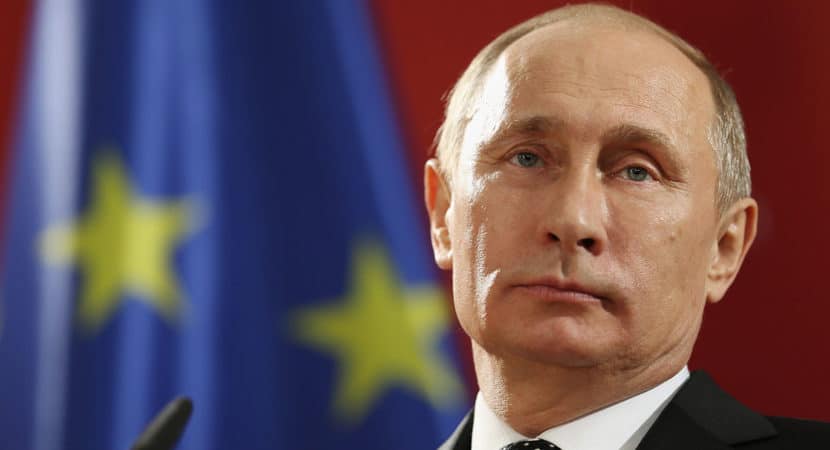TLDR
- Putin adviser Anton Kobyakov claims the US plans to use stablecoins and gold to devalue its $37 trillion debt
- The strategy would involve moving debt into “crypto cloud” through dollar-backed stablecoins to start fresh financially
- Senator Cynthia Lummis’ Bitcoin Act proposes buying 1 million Bitcoin over five years as part of debt management
- US officials say stablecoins will help maintain dollar dominance, not devalue debt as Russia claims
- Russia is developing its own ruble-backed stablecoin A7A5 to reduce reliance on US dollar stablecoins
A top adviser to Russian President Vladimir Putin has accused the United States of planning to use cryptocurrencies and gold to devalue its massive $37 trillion national debt. Anton Kobyakov made these claims during a press briefing at the Eastern Economic Forum in Vladivostok, Russia.
Putin’s advisor Kobyakov: The U.S. has devised a crypto scheme to erase its massive debt at the world’s expense.
“The U.S. is now trying to rewrite the rules of the gold and cryptocurrency markets. Remember the size of their debt—35 trillion dollars. These two sectors (crypto… pic.twitter.com/R4RDeYtaGg
— Russia Direct (@RussiaDirect_) September 8, 2025
Kobyakov argued that the US is trying to rewrite global financial rules to address declining trust in the dollar. He compared the current situation to financial crises in the 1930s and 1970s when America made major monetary policy changes.
The adviser claimed the US plans to move its debt into dollar-backed stablecoins within a “crypto cloud” system. This would allow America to devalue its obligations and “start from scratch” financially, though he did not explain the technical mechanics of how this would work.
The accusation comes as US national debt has reached $37.43 trillion, representing a ten-fold increase since 1981. Between 1948 and 1981, US debt remained relatively stable between $3.3 trillion and $3.66 trillion.
One example Kobyakov pointed to is Senator Cynthia Lummis’ Bitcoin Act. This proposed legislation would have the US government purchase 1 million Bitcoin over five years and hold it for 20 years unless needed to retire federal debt.
US Officials Present Different Rationale
American officials have described stablecoins differently than Kobyakov’s claims suggest. US Treasury Secretary Scott Bessent stated in March that stablecoins would help ensure the dollar remains the world’s dominant currency.
Former House Speaker Paul Ryan argued in July 2024 that dollar-backed stablecoins create demand for US debt instruments. This demand could reduce risks of failed debt auctions and potential financial crises.
The US has made legislative progress in this area. President Donald Trump signed the Guiding and Establishing National Innovation for US Stablecoins Act (GENIUS Act) into law in July.
This law provides regulatory framework for stablecoin operations in America. It gives clearer guidance to companies wanting to issue dollar-backed digital currencies.
Russia Develops Competing Stablecoin Strategy
Russia is not staying on the sidelines of stablecoin development. Russian state media reported in June that a new ruble-backed stablecoin called A7A5 was in development for launch on the Tron blockchain.
This appears designed to reduce Russian dependence on US dollar stablecoins like Tether (USDT). Russia has used USDT to settle oil trades with China and India despite international sanctions.
Russia banned cryptocurrency payments in 2022 but has become more open to digital assets recently. In May, the country allowed financial institutions to offer crypto-based products to accredited investors.
The development of competing stablecoin systems reflects broader geopolitical tensions over monetary control. Both countries are positioning themselves for a future where digital currencies play larger roles in international finance.
Kobyakov’s accusations highlight how cryptocurrency adoption has become intertwined with national security and debt management strategies. The claims remain unverified but reflect growing competition between major powers over financial system control.
The Eastern Economic Forum where these statements were made serves as Russia’s platform for discussing economic partnerships with Asia-Pacific nations. Russia has been seeking alternatives to Western financial systems since sanctions increased following its 2022 actions in Ukraine.







